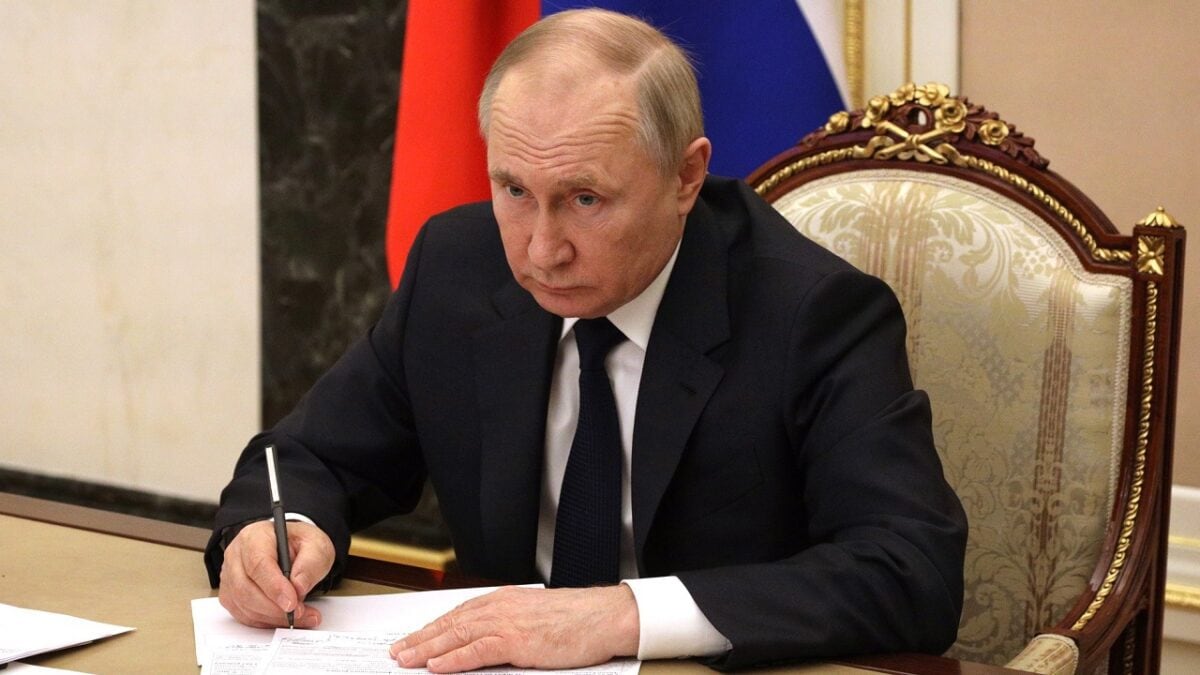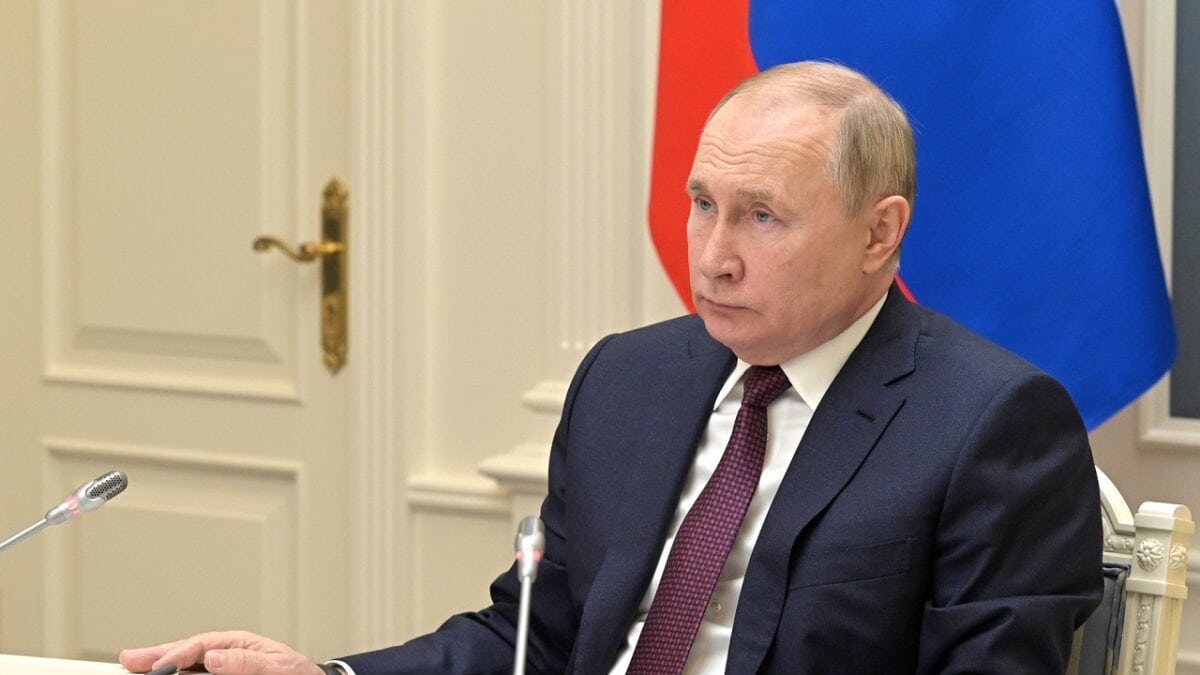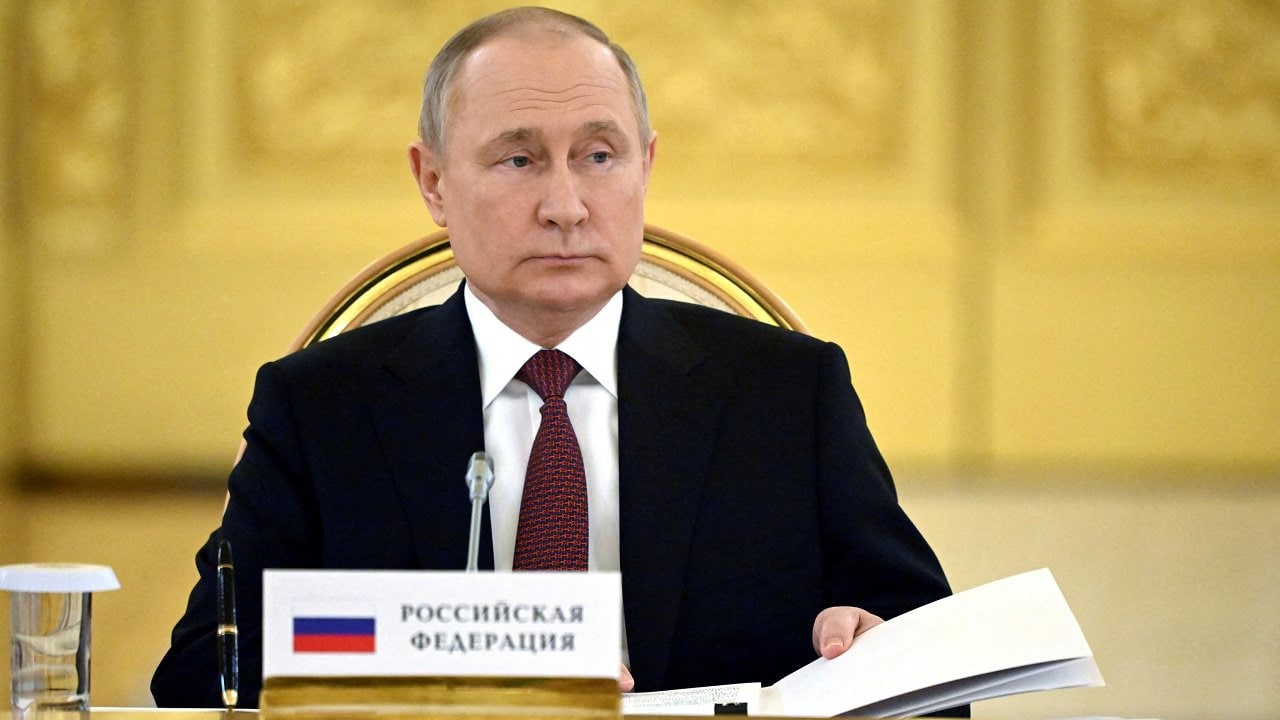There’s bad news for Americans who still think Ukrainians are really Russians in disguise. A recent concert and public opinion survey convincingly demonstrate just how out of touch with reality such a view is.
On July 27, North Korea celebrated the 70th anniversary of the end of the Korean War with a gala concert in Pyongyang. An army choir and orchestra, accompanied by a bevy of elegantly coiffed singing ladies in long dresses, devoted several songs to North Korea’s love for and adulation of Russia—in heavily-accented Russian, no less. The clip shows a stone-faced Minister of Defense Sergei Shoigu and his equally listless entourage listening to rousing military marches and saccharine melodies reminiscent of Soviet hits.
Was Shoigu struck by the fact that he was reliving his youth in North Korea’s capital while his comrades in Moscow were drinking it up? Was he impressed by the Stalinist performance? Or was he thinking about how isolated his country had become as a result of his boss’s decision to invade Ukraine?
We don’t know, of course. All we can say with absolute certainty is that a display of North Korean love of Ukraine would have been impossible, whether in Pyongyang or in Kyiv. Indeed, it is unthinkable—partly because Ukraine has had no diplomatic relations with North Korea since July 22, 2022, but mostly because Ukrainians have turned their back on Joseph Stalin and Stalinism.
According to a public opinion poll conducted by the Kyiv International Institute of Sociology and published on August 3, 61 percent of Ukrainians have a negative attitude toward the Soviet dictator, 26 percent are indifferent, and only 4 percent view him positively.
Contrast these numbers with those for Russia, where 63 percent of the general population and 48 percent of 18-24-year olds regard Stalin positively.
Consider also the trends. In 2012, 28 percent of Russians and 23 percent of Ukrainians viewed Stalin positively. Since then, Russian admiration for Stalin has boomed, while Ukrainian has shrunk to insignificance.
It’s surely no accident that this divergence in attitudes has taken place since just before the Maidan Revolution and Russia’s invasion of Ukraine in 2014. At that time, Ukrainians were beginning to mobilize against their homegrown dictator, Viktor Yanukovych. The Revolution of late 2013 and early 2014 galvanized anti-Stalinist tendences, but only slightly. It was the war that Russia unleashed again in 2022 that fundamentally altered Ukrainian attitudes toward Stalin. The war provided Ukrainians firsthand evidence of just what Vladimir Putin and his neo-Stalinist regime stood for: their death and their country’s destruction. When faced with genocide, only 4 percent of Ukrainians appear to have missed the link between Putin’s mass murders and Stalin’s.

President of Russia Vladimir Putin Meeting with members of the Government (via videoconference).

Vladimir Putin observes strategic deterrence forces exercise in the Kremlin’s situation room.
The cleft between Russians and Ukrainians and, importantly, between their identities is growing and may have reached the point of no return. Ukrainians have made their choice: to be European. So, too, apparently have Russians: to be North Korean.
Author Expertise
Dr. Alexander Motyl is a professor of political science at Rutgers-Newark. A specialist on Ukraine, Russia, and the USSR, and on nationalism, revolutions, empires, and theory, he is the author of 10 books of nonfiction, including Pidsumky imperii (2009); Puti imperii (2004); Imperial Ends: The Decay, Collapse, and Revival of Empires (2001); Revolutions, Nations, Empires: Conceptual Limits and Theoretical Possibilities (1999); Dilemmas of Independence: Ukraine after Totalitarianism (1993); and The Turn to the Right: The Ideological Origins and Development of Ukrainian Nationalism, 1919–1929 (1980); the editor of 15 volumes, including The Encyclopedia of Nationalism (2000) and The Holodomor Reader (2012); and a contributor of dozens of articles to academic and policy journals, newspaper op-ed pages, and magazines. He also has a weekly blog, “Ukraine’s Orange Blues.”
From 19FortyFive
Footage Shows World War I Guns Being Used in Ukraine
‘Vacuum Bombs Destroyed’: Ukraine Footage Shows Putin’s Thermobaric Rockets Destroyed
BOOM! Ukraine Video Shows Precision Strike on Russian Air-Defense System

